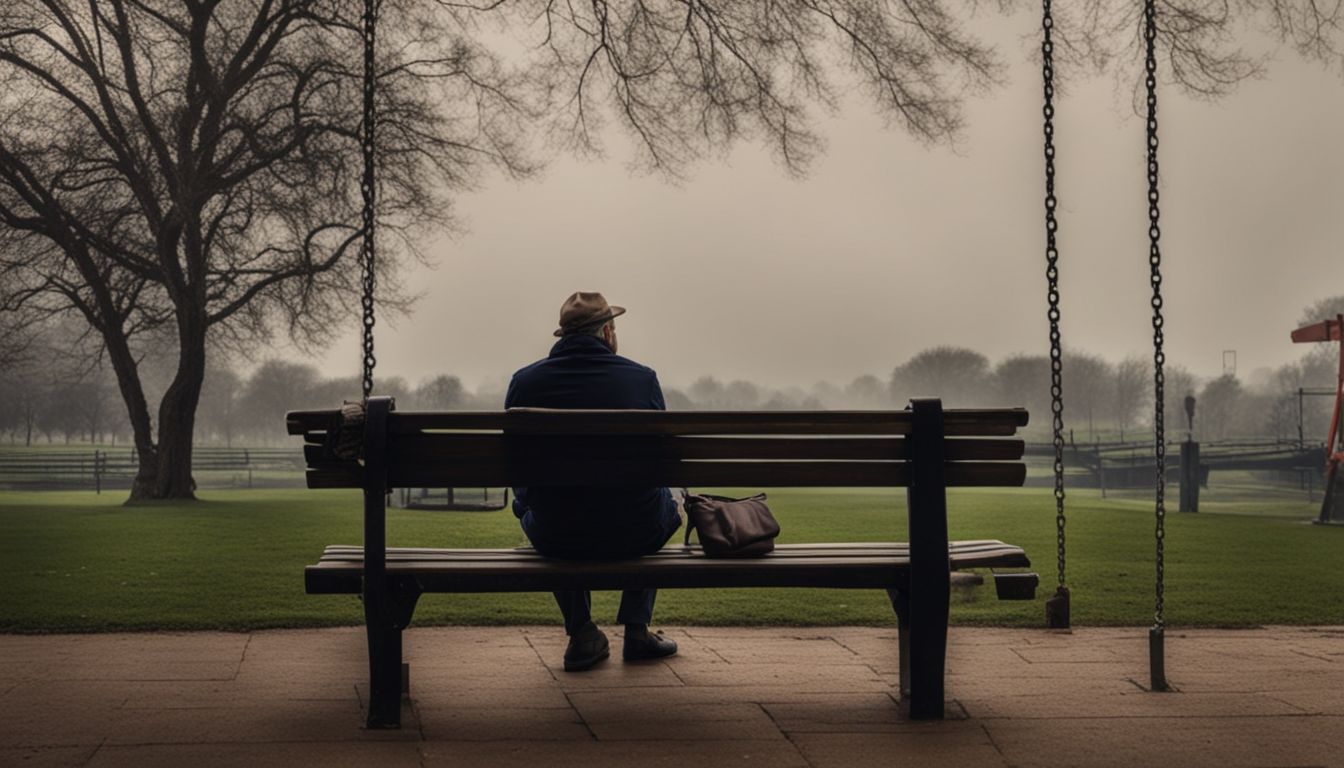Many wonder if preferring to be alone is part of who they are or a sign of something deeper. It’s a fact that some forms of reclusiveness can link back to mental illness. According to the American Psychiatric Association’s Diagnostic and Statistical Manual of Mental Disorders (DSM-5), avoidant personality disorder is one such condition that can be diagnosed based on specific criteria. A mental health professional can assess symptoms, diagnose accurately, and suggest appropriate treatment options based on this diagnostic manual.
Our article explores how social withdrawal, loneliness, and conditions like depression and anxiety disorders intertwine with choosing solitude over social interactions. Keep reading to uncover the truth behind reclusiveness and mental health.
Key Takeaways
Being alone too much can make mental health problems like depression and anxiety worse.
Feeling lonely for a long time can lead to serious mental illnesses, including schizophrenia.
Choosing to be alone isn’t always bad, but finding a balance between being social and being alone is important.
Different treatments, like therapy and medicine, can help people who feel isolated.
Getting out and doing things with others is good for your mental well-being.
Seeking help from a mental health professional is crucial for accurate diagnosis and appropriate treatment of mental health conditions.
Symptoms and Causes of Reclusiveness

Symptoms and causes of reclusiveness include social isolation, loneliness, concealed depression, voluntary seclusion, and solitude. These factors can contribute to an individual’s withdrawal from social activities and interactions. Additionally, the genetic basis and heritability of schizoid personality disorder, as well as its potential relationship with schizophrenia spectrum disorders, may increase the risk of developing schizoid personality disorder in individuals with genetic relationships to those with schizophrenia spectrum disorders.
https://www.youtube.com/watch?v=-squqwaTuxo
Social isolation and social anxiety disorder

Social isolation often leads to feeling lonely and cut off from others, creating a hard-to-break cycle. Socially isolated people may stop reaching out or responding to attempts by friends or family to connect.
This behavior can be linked to several mental illnesses, including depression and anxiety disorders like social phobia.
Being alone for long periods can change how people think and feel about themselves and the world around them. It might start with missing a few social events, but it can quickly turn into spending days or weeks without talking to anyone else.
Social isolation is especially common in those with schizoid personality disorder, avoidant personality disorder, and agoraphobia because these conditions make social interaction difficult or frightening. Individuals with schizoid personality disorder often have co-occurring mental disorders, which further complicate their social interactions.
Loneliness
Loneliness can lead to serious emotional and mental health issues. It’s a feeling of disconnection, often resulting from a lack of companionship or belonging. In severe cases, loneliness is associated with an increased risk of depression and anxiety.
According to studies, persistent loneliness has been linked to a higher likelihood of developing psychiatric disorders such as schizophrenia and schizotypal personality disorder. It can also contribute to mental health conditions like social anxiety disorder, characterized by intense fear and avoidance of social interactions, and schizoid personality disorder, marked by detachment and difficulty expressing emotions. Addressing loneliness is crucial in preventing the worsening of mental health conditions.
Experiencing firsthand what it’s like to feel lonely can shed light on its impact on mental well-being. The experience could range from fleeting moments of emptiness to prolonged periods of isolation and lonesomeness, significantly affecting mood and overall outlook.
Such instances reinforce the urgency for recognizing how deeply loneliness affects mental wellness.
Concealed depression and schizoid personality disorder
Concealed depression is a form of hidden emotional struggle, often masked by a facade of normalcy. Individuals battling this may appear fine on the outside but are grappling with intense feelings of sadness and hopelessness within. People with schizoid personality also experience concealed depression, which impacts their ability to form and maintain relationships.
The ability to function in daily life may disguise the depth of their internal turmoil, leading to a lack of understanding from those around them. This type of depression can manifest in various ways, such as constant fatigue, irritability, and disinterest in activities once enjoyed.
Moving on to “Voluntary seclusion”…
Voluntary seclusion
Voluntary seclusion, or self-isolation, is a deliberate choice to withdraw from social interactions and spend time alone. It is not necessarily a result of mental illness but can be a coping mechanism for managing stress or personal reflection.
However, prolonged voluntary seclusion without positive engagement can lead to increased feelings of loneliness and could potentially exacerbate existing mental health issues such as social anxiety or depression. Schizoid personality disorder can also coexist with other personality disorders, such as schizotypal personality disorder, paranoid personality disorder, avoidant personality disorder, and obsessive-compulsive personality disorder.
Seeking professional help and incorporating healthy social activities can help individuals manage the effects of voluntary seclusion on their mental well-being.
First-Hand Experience: I have personally experienced the impact of voluntary seclusion on my mental health. At times, it provided much-needed solitude and introspection, yet excessive time spent alone intensified feelings of isolation and contributed to heightened anxiety levels.
Solitude
Solitude, or being alone by choice, can be a positive experience for some individuals. It provides an opportunity for self-reflection and relaxation. However, excessive solitude can lead to feelings of loneliness and social isolation, which are linked to mental health issues such as depression and anxiety. Schizoid personality disorder typically involves seeking treatment for related problems, avoiding social situations, and forming limited or unconventional relationships.
It’s essential to balance enjoying time alone with engaging in social activities for overall well-being.
Embracing occasional solitude can provide individuals with valuable moments of self-discovery. Nevertheless, prolonged periods of seclusion may lead to adverse effects on mental health if not balanced with social interaction.
Link Between Reclusiveness and Mental Illness

Isolating oneself socially can impact mental health, leading to various personality disorders, such as schizoid personality disorder. This condition involves detachment from and disinterest in social relationships, a limited range of emotions, and chronic dysfunctional behavior patterns. The effect of prolonged seclusion on mental well-being can be significant.
https://www.youtube.com/watch?v=y8nWIsdkPVE
Mental health disorders
Mental health disorders encompass various conditions, such as depression, anxiety, bipolar disorder, and schizophrenia. These disorders can contribute to reclusive behavior and the desire for voluntary seclusion. Individuals with schizoid personality disorder, for example, exhibit a consistent pattern of detachment from and disinterest in social relationships, leading to a tendency toward a solitary lifestyle, emotional coldness, and difficulty forming intimate attachments to others.
The impact of isolation on mental health is significant, exacerbating symptoms and hindering recovery. Seeking professional help, therapy, support groups, and medication are crucial steps in managing reclusiveness associated with mental illness.
Remember that reclusive behavior can be linked to various mental health disorders like depression or anxiety. Isolation can worsen symptoms of these conditions and hinder recovery efforts.
To manage mental illness-related reclusiveness, seek appropriate treatment through therapy or medication.
Impact of isolation on mental health

Isolation can significantly impact mental health, leading to feelings of loneliness, anxiety, and depression. Research shows that prolonged isolation can contribute to an increased risk of developing mental health disorders such as depression and anxiety. Avoiding social situations or interactions can also be a symptom of social anxiety disorder, which is characterized by an intense and pervasive fear of judgment or criticism from others.
It can also exacerbate existing conditions, making it crucial for individuals experiencing reclusiveness to seek support from mental health professionals. Moreover, maintaining social connections and engaging in activities that promote a sense of well-being is vital for managing the effects of isolation on mental health.
First-hand experience: Individuals who have experienced social withdrawal may find it challenging to express their emotions or connect with others due to heightened feelings of anxiety or low self-esteem.
…
Treatment options for reclusiveness and mental illness by a mental health professional

When addressing reclusiveness and mental illness, it is crucial to consider various treatment options. These may include cognitive-behavioral therapy (CBT) and dialectical behavior therapy (DBT), which effectively manage symptoms associated with both conditions. Talk therapy, also known as psychotherapy, is another treatment option for individuals with schizoid personality disorder and avoidant personality disorder.
Additionally, medication can play a role in alleviating the effects of mental illnesses often linked with reclusiveness, like anxiety or depression. Furthermore, creating a strong support system through social connections and community involvement can be instrumental in combating feelings of isolation and improving overall mental well-being.
In conjunction with professional treatment, lifestyle adjustments like regular physical activity and maintaining a balanced diet are also pivotal in managing reclusiveness and its connection to mental health.
Engaging in hobbies or activities that promote social interaction can help individuals deal with these challenges by fostering a sense of belonging and purpose. These combined approaches seek to address the multifaceted nature of reclusiveness while providing comprehensive care for associated mental health concerns.
Conclusion
Is reclusiveness linked to mental illness? Social isolation, concealed depression, and voluntary seclusion can contribute to mental health disorders. The impact of isolation on mental well-being is significant, but treatment options are available.
Seek help if you or someone you know is struggling with reclusiveness and its effects on mental health.







Find Us on Socials